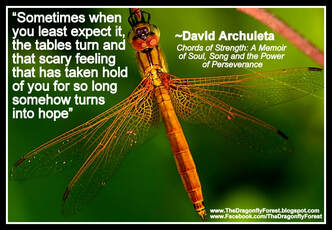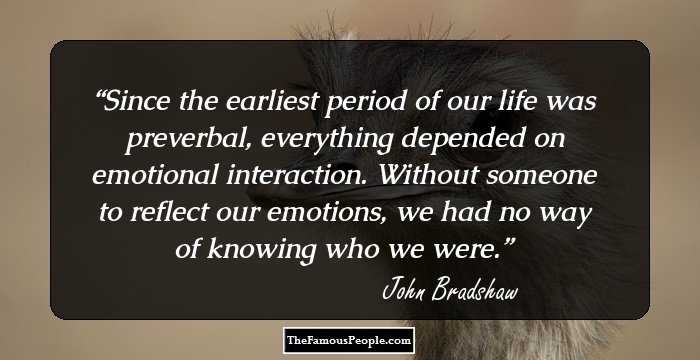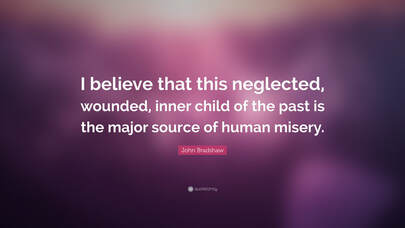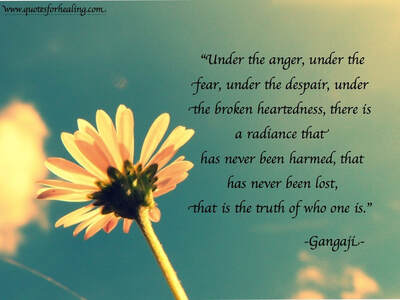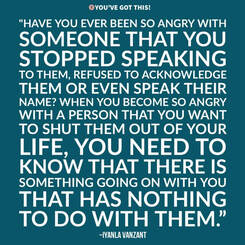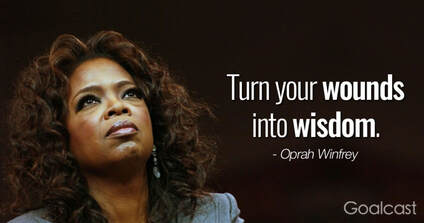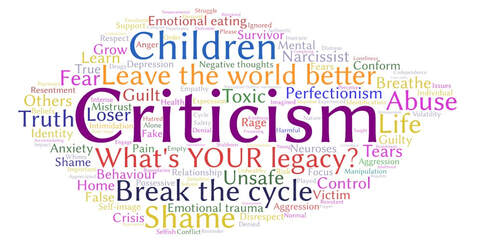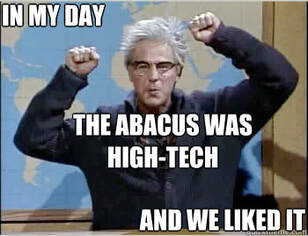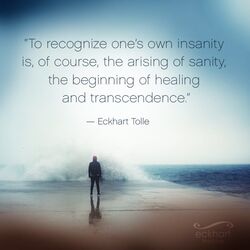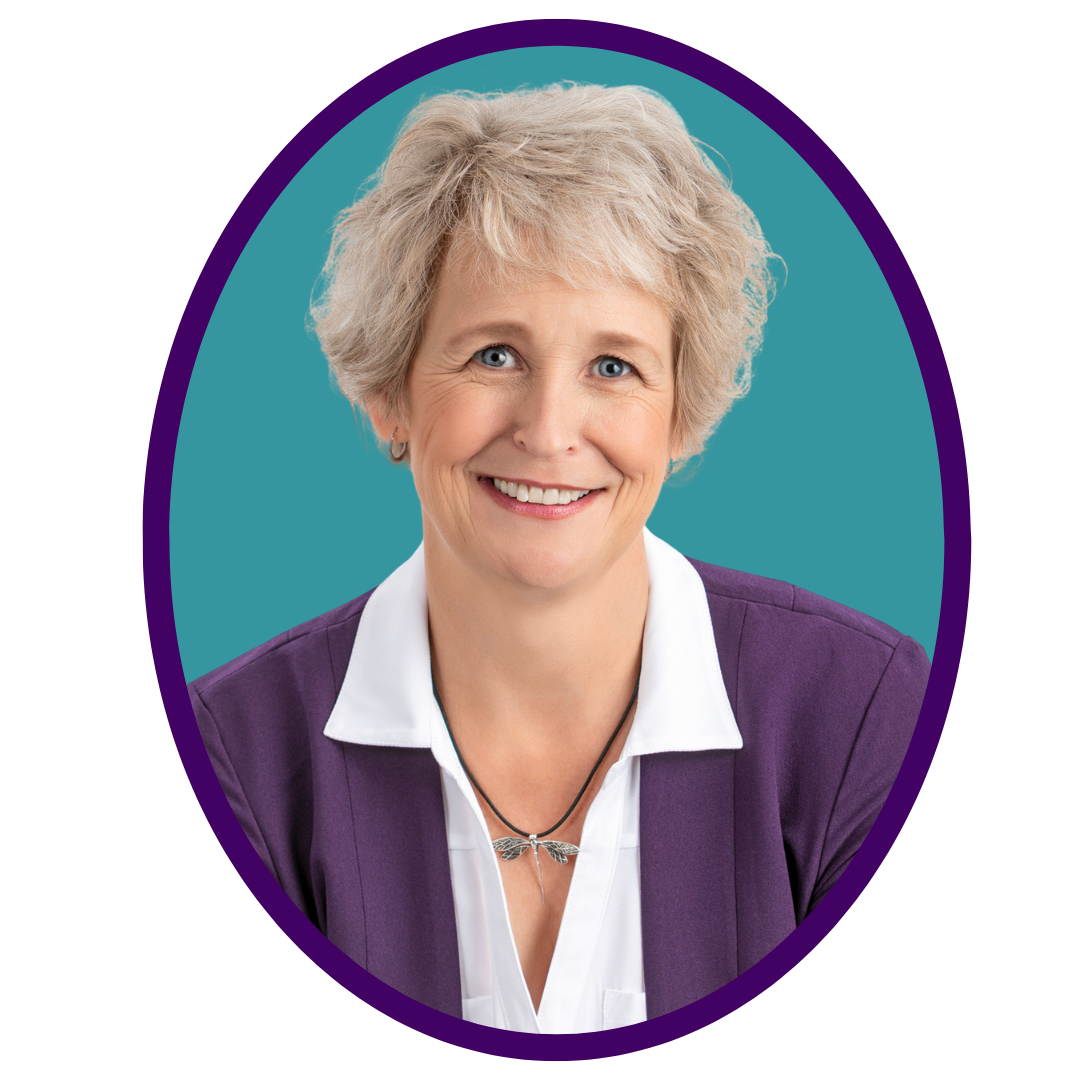|
In case I haven’t made it clear, I have been on quite the personal journey these past six years. Shameless self-promotion: Don’t ever trust a coach who hasn’t done her own work. I have explored my own limiting beliefs and strive every day to rise above them. Many I have replaced with healthier ones, but there are some that have been part of me for so long that they’re harder to overcome. One of my most tenacious and pervasive is the belief that I need to be perfect to be loved. Huh. I was going to change that to “accepted,” but couldn’t bring myself to type it. Damn you, Brené Brown! I am listening to her Dare to Lead this week and heard her voice in my ear reminding me not to sanitise. If you’re lonely, don’t say you’re disconnected. If you’re drowning, don’t tell me that you’re swamped. If you’re overwrought, don’t say that you’re uncomfortable. It’s inauthentic of you and totally unfair to the person with whom you’re sharing it. They can’t know how to help you unless you’re forthcoming. They may not even understand that you need help. “Clear is kind. Unclear is unkind,” right Brené? Where was I? Ah, yes, my perfectionism. One little word means so much.
Why am I sharing this with you? No, seriously. Why? Geez, it’s like going into a room, forgetting why you’re there. Being middle-aged is fun! My journey, right. Six years ago, I gave up my internal perfectionism. I embraced my own imperfection, and it was a game-changer. Literally. I started to worry less about my golf game and to enjoy it more. On other fronts, it allowed me to have a more open-minded flexibility. It is the reason that I got into coaching, rather than choosing to continue to massage seniors for the rest of my life. Don’t get me wrong; I love them, but, twenty-two years in (ten working out of a chiropractic clinic) the work has become too physically demanding. Fear of failure could have kept me stubbornly doing it, but I took the leap and its associated emotional risks. This new me brought with it a totem of sorts, a spirit animal, an alter-ego: The Dragonfly, class Insecta, order Odonata, infraorder Anisoptera. What does she symbolise? Thank you for asking!
“Dragonflies are reminders that we are light, and we can reflect light in powerful ways if we choose to do so.” ― Robyn Nola What’s not to love? One last thing Anisoptera brought me was the ability to ride the winds of change, and this I do gratefully and willingly. Where once fear held me back, I now trust myself and my direction. It’s not all dragonflies, puppies, and rainbows, though. What I’ve been sharing with you is how I have gotten a handle on my internal perfectionism, my newfound willingness to see myself as imperfect. There’s still the matter of my external need to appear perfect, or, at least, like I’ve kinda got my *stuff* together. If I’m putting the effort in for someone else, I hate to disappoint them. I’ll eat pretty much anything, but what I serve others cannot be subpar. (Don’t get me started on the near-disintegrated turkey I served one Christmas!) I oftentimes find myself apologising for what I’m serving. The idea of disappointing others leads back to fear of judgment. And feeling not good enough. And anxiety. And the inability to fully enjoy a visit from family. Or hosting a dinner party. Now hear this!! Future guests, please know that my house usually looks significantly more, uh, lived-in than when you’re here. I saw something go by on Facebook that resonated. “Laundry – Wash cycle, forty-five minutes. Dry, forty-five minutes. Put away, seven to ten business days.” In a business context, perfectionism can be stifling. I can only speak for myself when I say that it delays progress. Rereading blog posts, taking yet another course so I can be a perfect coach for my clients, writing and rewriting hypnosis scripts… all of that pushes back what I am truly called to do, serve families on their path to healing. When I wrap my head around the ramifications of that, it seems selfish; by not making my services widely known, I’m withholding them from people who could be helped. People I could help. And why? Because I stammered doing a video ad for Facebook? No more. I occasionally stammer. I could sometimes write a more cogent blog post or a more powerful hypnosis script. I don’t strive for perfection, but I give a hundred percent, I give myself permission to evolve and grow as a coach and as a human being, and I’m authentically me. I’m good with that. What do you want your legacy to be? Last weekend I was at the movies. The Lion King, and saw a young family getting buttery-flavour topping for their popcorn. They had in tow a young girl of three or four. She was dressed in a pretty pink dress and getting rather rambunctious, when I heard her exasperated father ask, “What is the matter with you?” My heart sank. I don’t know what frustrations his day had already held or what stressors were ruling his life, but I will bet you dollars to doughnuts that his younger self had been asked the same question. It doesn’t just appear out of nowhere. And in that moment, popcorn crunching under my feet, I just wanted to reach out to that father and dig deep inside to find the moment when those words had harmed his young self. When I first found myself drawn into the world of end-of-life care, I was unsure of my niche. I will be approaching our local chapter of No One Dies Alone (again) in the hopes of volunteering to sit vigil, but that isn’t where I want my work to take me. No matter where I turned, my calling was toward relationship repair. Probably why I called myself an end-of-life coach. When all is said and done, all coaching is relationship coaching. I came to believe that the reason people grew fearful or angry toward end-of-life was because they were living with unresolved relationships. But aren’t we all? Isn’t there something, some “What is the matter with you?” comment that shaped your life? What if you could repair it? What if you could heal the wounded child inside of you who was on its receiving end? What if you could learn to believe that you are perfect just the way you are? Now imagine the impact that could have on your family line. Teach your children that you’re not judging, you’re guiding them. Teach them that it’s OK to cry and be vulnerable. Teach them that no matter how angry you might get at or how much you don’t love something they’ve done, you still love them. Imagine teaching them by example that it’s OK not to be perfect, and that, when you’re not, taking responsibility for hurting someone else is the right thing to do. Imagine teaching them to love themselves unconditionally. So, yeah, that’s why I transitioned away from my exclusive focus on end-of-life. I am a legacy coach. I am here to help the people of this world heal, one family at a time. The cycle of familial emotional trauma can be broken. Goodbye, Violet Light. Hello, Shatter the Pattern Coaching. Riding the winds of change. My legacy. Leave the world better AuthorChristie Morden is Calgary's premier emotional legacy coach. Her unique and revolutionary blend of guided meditation and coaching techniques helps her clients achieve results fast and get the healing that they and their families need to shatter the pattern of generational emotional trauma.
0 Comments
It’s not who you are; it’s how you are perceived. I first heard that succinctly expressed when I was in my early twenties, but I think it was something I had fought against my entire life. Talk about your limiting beliefs! It worked for Ted Bundy, though, didn’t it? “Jean-Jacques Rousseau (1712-78) argued that personal authenticity is diminished by the need for the esteem of others in societies characterized by hierarchy, inequality, and interdependence.” https://philosophynow.org/issues/92/The_Limits_of_Authenticity) That makes total sense, right? If you didn’t fit in in a hunter/gatherer society, you would be ostracised and, likely, not survive outside of the community. That’s an instinct that survives today, particularly in children, whose community is their family. The young child learns what she needs to do, how she needs to behave, through the encouragement or discouragement of her parents. The trouble is, what if the parents’ temporary needs supersede the child’s long-term ones? A government pamphlet from the early twentieth century recommended that "mothering meant holding the baby quietly, in tranquility-inducing positions" and that "the mother should stop immediately if her arms feel tired" because "the baby is never to inconvenience the adult." A baby older than six months "should be taught to sit silently in the crib; otherwise, he might need to be constantly watched and entertained by the mother, a serious waste of time." (See Blum, 2002.) I can picture the shock on the faces of those of you raising children today, but that was what the experts of the day espoused. We are an adaptive and evolving species; our understanding of child psychology – as with all sciences – is always up for review and revision. I hope most of us can agree that we don’t know everything. The way we were raised and the way we raised our children isn’t necessarily the best way. I had a client a million years ago who, before he was even a parent, said something which has stuck with me all this time. “Parents need to realise that they’re not raising a child; they’re raising an adult.” You see, everything we do should prepare them to be independent from us. An authoritarian parenting style creates adults who fear and kowtow to people in power. (Enter Donald Trump.) They tend to be socially awkward, feel inferior to their peers, and to not be particularly self-reliant. They don’t make waves, are quiet and well-behaved. As Laurel Thatcher Ulrich wrote, "Well-behaved women seldom make history." Neither do the men. Now, for all of you grandparents who are shaking your heads, saying, “Kids today are spoiled!” you might be right. When I was twenty/twenty-one years-old, I worked as a waitress – yep, we were still waiters and waitresses then – at a Jewish-owned restaurant in Montreal. The clientele was also predominantly Jewish. I would often have three generations at a table. Grandma would be in her sixties or seventies, Mom in her forties, and Daughter would be maybe twenty-something. I could still read the tattoo on Grandma’s forearm. If Mom was lucky, she had been shipped off before the war. But Daughter? Her we used to call the Jewish-American princess. That’s probably politically incorrect these days, but I intend no offense. She – and I met plenty – was Jewish, and she was North American. And her family turned her into a princess by giving her everything she wanted. I get it. The older generations had gone through hell and vowed to protect their children from every bad thing the world would throw at them. But that permissive style of parenting made the younger generation spoiled, self-involved, and entitled. That’s ringing some bells, innit? They say it takes three generations to break a familial pattern. I think that’s what the parents of millennials have done, but the pendulum may have swung too far in some cases. I don’t want to sound like a middle-aged woman, but that’s what I am. I do go to the same movies as the millennials (because I am also a teenage boy at times) and, when I hold the door for them, the vast majority do not even reach out to grab it, just duck their little heads under my arm. Also, they’re so unused to looking people in the eye, when they do, instead of a hello or a nod, they look away as though they’ve been scalded. It’s called common courtesy, people! But… “Back to my Millennial. He raises his hand. I call on him.” “He says, ‘Everyone complains that we expect a trophy for just showing up. But who was buying those trophies for us as kids? We weren’t. You were. You created this generation, and now you are complaining.”’ https://institute.uschamber.com/is-respect-different-for-millennials/ It’s not about blame. It’s the pendulum. Just physics. I have begun to find that younger kids are more polite. I was putting up my Halloween decorations last year and a lovely young man of about eleven or twelve asked if I needed any help. And when I hold the door open for them at the movie theatre (I also like Pixar, she added, unapologetically) they usually say thank you. I always look to the parents saying something like, “You’ve got a very polite child there.” So, maybe the pendulum is settling into what the experts are now saying is the ideal parenting style, authoritative. It is a passive/authoritarian hybrid, a blend of telling the child what to do and letting them know why. "Because I said so/I'm your mother" has no place here. There are expectations placed on the child, while the parents are responsive to her needs. Limits and boundaries are set and enforced in a loving and respectful way. The children raised in such an environment:
What fine adults they'll make! Free to be and comfortable with themselves. What a circuitous way to get back to the point I initially intended to discuss: Authenticity. I wore many masks throughout my life, trying to be the best version of me for everyone else and in every situation. It was exhausting. And living inauthentically creates a horrible cognitive dissonance, a level of stress that can't be carried forever. Maybe to find ourselves we must give up our masks and discover the people we were meant to be, living our best lives outside of the expectations of others. We honour our loved ones better when we show them our true selves, when we say, "Here I am in all my imperfection. I trust you enough to show you who I am." ______________________________ You might wonder what business I have discussing good parenting, having no children of my own. To my mind, a great coach gives you fresh perspective, allows you to look at your situation more objectively. That's what I'm offering, and it's even easier for me because I have no skin in the game. There's none of that pesky defensiveness on my part where I champion my own parenting style, all the while worrying that I've somehow broken my kids. Nope, I will not lay any baggage at your feet. :) I do have nieces and nephews whom I adore, and I want them to always know that they're safe with me. What do you want your legacy to be? I had a great perspective lesson this week. It was living in the 'gap' versus living in the 'gain'. The easiest way to explain is through example: A man comes home with flowers for his wife. She receives them, saying, ""Didn't they have any roses?" Instead of appreciating his loving gesture, the woman focuses on what's missing, the gap. The pain of this situation is twofold, the woman who lives her life in disappointment (for what we focus on expands), and the man who will likely never bother to bring her flowers again. Sadly, 75% of people live in the gap. I choose to live in the gain, people! Who's with me? Leave the world better. AuthorChristie Morden is Calgary's premier emotional legacy coach. Her unique and revolutionary blend of guided meditation and coaching techniques helps her clients achieve results fast and get the healing that they and their families need to shatter the pattern of generational emotional trauma. Why do we talk about the Inner Child as though there's only one living inside of us? If you think of your authentic self as the soul you turned up with when you began this life, you can consider all of your emotional traumas as those things that have chipped away at it throughout your lifetime, stunting your growth at those points. Or can you honestly tell me that you've only suffered one emotional trauma? The National Institute of Mental Health defines childhood trauma as, "The experience of an event that is emotionally painful or distressful, which often results in lasting mental and physical events." Notice the use of the word experience. An adult looking in or looking back would probably never consider some of these events trauma-inducing, but that's part of the shame that the adult you carries; you can rationalise things all you want, but getting beaten up by a girl is emasculating. Or a dog barking in your face when you're an infant is terrifying. Or Daddy letting go of your bike when he promised he wouldn't is trust-breaking. Sure, you can look back at all of it now and understand why you don't trust strong women (or their dogs), but until you heal your wounded inner children, you will likely never overcome it. OK, so those're some pretty innocuous consequences, I agree, but oftentimes the traumas are infinitely more, uh, traumatic, or they layer one upon the other, colouring and solidifying an individual's view of him/herself and the world. Take, for example, the four year-old son of a single mom. Dad is in the picture but off raising another family. He is unpredictable and frequently cancels plans with the boy who concludes:
Then there's the latchkey kid who has to look after his younger siblings because his mom works until six. When she gets home , she berates the boy for not yet having dinner on the table.
What about the artistic teenager, the only son, whose father was a football star back in his day? Dad feels that he can tease and bully his son into being the boy he wanted. Dad doesn't hold back, even gets his buddies in on the action. The son thinks:
Now imagine that that is the same boy at different ages. In the example, his first wounded child is a preschooler. The wound may show up as rage, the rage his four year-old self felt, but could not express, toward his father. The second of the boy's wounded children was school-aged. The wounds might present in adulthood as social awkwardness, procrastination, and black-and-white thinking. The wounded adolescent often presents as conflict with authority figures, a sense of superiority, or a reluctance to take action. Same man, three inner children. Inner child work is fascinating and rewarding, but it can also be complex. I like to start with limiting beliefs and work backwards. Here's the list of limiting beliefs that I work from. Take a look and see which ones strike a chord with you. Please let me know if there are any others I need to add to the list.
You will recognise your own inner children by the negative thoughts in your head. You may even find that the voices sound like someone you know - your mother or father, a teacher, sibling, or bully from your childhood. Six years ago, I named mine, called them S**thead and A**hole. I thought that made them easier to tell off. More recently, however, I've learned that that's counter-productive; I had to acknowledge them as a part of me, so I've started instead saying, "Thank you for your input." Full disclosure, these days when I'm doing my own inner child work, I call all of mine L'il Wooz. *breathes* When I was born my older brother, Mike, couldn't say Christie. I was Tizzy. Yep, Tizzy turned into Tizzy Wizzy Woozle. Side note: My father used to frequent a restaurant at which I worked. In front of my full section, staff, and management, he would cry out, "Wooz!" to get my attention. But I digress... After a fair bit of work, L'il Wooz and I now have a wonderful relationship. She still pops up from time to time, in the form of anger or frustration, just to let me know where some attention is needed. We go and hang out in our hammock to chat and heal. It's really peaceful. So is my life these days, I'm blessed and happy to say. :) What do you want your legacy to be? John Bradshaw, Inner Child Therapy pioneer and author of six books including Homecoming: Reclaiming and Championing your Inner Child, used the mnemonic CONTAMINATE to define his model of how your wounded inner child can turn up in your adult life. Co-dependency Offender Behaviour Narcissism Trust issues Acting out/acting in behaviours Magical beliefs Intimacy dysfunctions Non-disciplined behaviours Addictive/compulsive behaviours Thought distortions Emptiness (apathy, depression) Bradshaw also brought the terms "inner child', 'toxic shame'. and 'dysfunctional family' into common usage. Shatter the pattern of dysfunction for your family. AuthorChristie Morden is Calgary's premier emotional legacy coach. Her unique and revolutionary blend of guided meditation and coaching techniques helps her clients achieve results fast and get the healing that they and their families need to shatter the pattern of generational emotional trauma. Leave the world better.
Imagine being able to reach inside and find your true self, the one you came into this world as? Imagine going back and removing all of the conditioning that self was subjected to. Who would you be today? Who could you be today? While I drove up to Radium, B.C. a couple of weeks ago, I listened to Dr. Beverly Engel’s Healing Your Emotional Self: A Powerful Program to Help You Raise Your Self-Esteem, Quiet Your Inner Critic, and Overcome Your Shame. Y’know, a little light reading. I was, as usual, searching for insights to better serve my clients. I was not disappointed. Some insights come through the words and ideas of an author, but others are arrived at as an almost visceral reaction to the same. Dr. Engel is an internationally recognised psychologist and the author of twenty-two books, but l’il old me takes great exception to some of the words she uses.
You might be saying, “But, wait, Christie. Are you arguing that abuses don’t happen?” Of course not. Abuse is a very real, very tragic thing, but Dr. Engel uses it a little too freely for my tastes. A parent who scolds a child is not being ‘abusive.’ The child may suffer emotionally for it – and forever – but there was no intent to injure on the part of the parent. Any of you parents reading this might be getting defensive. “There’s no way I caused my child emotional trauma with a simple scolding!” The adult mind understands scolding. The mind of a four-year-old? Not so much. His logic might go something like this: “Mommy is angry.” “I made Mommy angry.” “Mommy is perfect.” “There must be something wrong with me.” By the time the child learns that Mommy (or Daddy, or Grandma, or the nice daycare lady) isn’t perfect, the damage is done. You see, for a small child, the need for his caretakers to be perfect is a matter of survival. They cannot be imperfect, or the child’s life is literally in jeopardy. Conditioned with scolding (as an example) for long enough, that boy could become a man who cannot take criticism of any sort. He may lash out in anger any time he feels judged. By contrast, he may become a doormat, eager to please, never risking criticism. The boy’s mother was doing the best she knew how. Her intention was to guide her son into doing what she believed to be right. She was guiding his behaviour so he would be the kind of child she wanted him to be. The kind of child she wanted him to be. Thus begins the undermining of his true self. Nothing abusive. It was all intended to be for the greater good. Children cannot be allowed to run amok. Society’s got rules, and the child who does not follow those rules will be ostracised. That, too, is a matter of survival, isn’t it? The trouble is that societal norms change more quickly and easily than parenting styles. The latter tend to get passed down through the generations. The “children should be seen and not heard” paradigm has given us generations of kids, and, subsequently adults, with no voice. No wonder we’re looking to our leaders to take care of us and tell us what’s best for us. No wonder more of us aren’t screaming in anguish over children living in cages. That brings me to the other word Dr. Engel uses which gets my back up: Victim. You are not responsible for the conditioning you received in childhood, but, as an adult, you are responsible for fixing it. I refuse to see any grown up as a victim. The facts as I see them:
I know which world I would rather live in. It’s the one I’m trying to help promote, the one where compassion triumphs over judgment, where collaboration is ultimately seen as more advantageous than divisiveness, where we realise that global interests are self-interest. And it all starts with healing our inner children first. That’s how we turn the tides. Healing is contagious. Leave the world better This week I was working with a friend, Andrea McGuinness owner of Optimum Parenting for Families when we realised that what most parents want is to be the parent they needed as a child. In a moment of synchronicity, this morning I ran across Brené Brown’s The Gifts of Imperfect Parenting, a quote from which really hit me: “Are you the adult you want your child to become?” I’m just going to leave that right there while you check yourself for anger issues, anxiety, addiction (including workaholism), low self-esteem, perfectionism, shame… What do you want your legacy to be? AuthorChristie Morden is Calgary's premier emotional legacy coach. Her unique and revolutionary Quicknotherapy, a blend of hypnotherapy and coaching techniques, helps her clients achieve results fast and get the healing that they and their families need to shatter the pattern of generational emotional trauma. Is it Thursday already? A lot can happen when you're distracted, can't it? Yep, that's my not-so-subtle segue into talking about hypnosis. It has been brought to my attention - shout out to my brother Pete! - that in this day and age (I might be channelling my grandfather when I say that), 2019, with so many people embracing their inner Zen through meditation, hypnosis still gets relegated to the realm of sorcery and brainwashing. I blame Gilligan's Island, but... holy moly! That was in 1965, before I was even born. It was in black and white, for goodness sake! Surely, we have evolved in our thinking since then. If it were that easy to exercise mind-control over you, hypnotists would all be millionaires in the ad game, and you would have bought my twelve-session programs for yourself and all of your family members by now. But you're smart, you do your due diligence, and, most importantly, you are in control. Have you ever been hypnotised? Of course you have. Hypnosis is a natural brain state. We are in it most of the time. Any time your conscious mind drifts - when you are listening to the minister's sermon, when your spouse is walking and talking you through their every golf shot of the afternoon, when a TV commercial comes on and you don't forward through it, that's all hypnosis. But, you might be arguing, that's self-hypnosis. Let me let you in on a little secret: All hypnosis is self-hypnosis. By that logic, you are always in control. Always. Allow me to illustrate using another common example. You know those times when you are driving home and you don't remember the commute? That's hypnosis. But if something dramatic had happened - a child darting out onto the street or you seeing unexpected brake lights - you would've snapped right out of it. Control. Photo radar only catches people who are in a hypnotic state. And texters. But, Christie, what about that whole, "All hypnosis is self-hypnosis" thing? Thanks for reining me in! Allow me to offer up another example. I don't think my father would ever let me hypnotise him. I mean, he might sit down with me to ostensibly try, but his mind would probably overrule it, even if we were just doing some simple positive suggestion stuff. (I don't do therapeutic hypnosis with family members, because it can be difficult to get them to be truly open and forthcoming, y'know, vulnerable. It can be much easier to open up to a stranger, I mean, a stranger who's signed a confidentiality agreement, not, like Dave down at the 7-11, though I'm sure he's pretty tight-lipped.) Where was I? Right, Dad. I think he'd feel uncomfortable being hypnotised by me in person. I mean, I've given my folks a sleep recording, and the rumour is that it's so good that he's fast asleep before I've even spoken, but in person is a different thing. I can't see him opening up to me. What I can see is old Reggie up on stage at a hypnotist's show. Dad, uh, doesn't hate being the centre of attention. He's also been doing meditation since I was a 'tween. And he would feel safer being part of a comedic show than opening up about himself to his baby girl. See, he is in control of whether or not he gets hypnotised. Stage hypnosis works so brilliantly because the hypnotist really knows how to pick his/her participants. The ones who go up on stage really want to be there. If you've ever seen a show, what you've also seen is the power of the subconscious mind. I saw a woman eat an onion like an apple without flinching. I saw an entire group of hypnotised people go downstairs to the bathroom and come back up completely perplexed because their genitalia were suddenly the opposite gender's. And more recently, in a therapeutic setting, I have seen people sit in conversation with their estranged or deceased loved ones. I have helped people engage with and heal their wounded inner child. I have sat with a woman as she wept and forgave the father who molested her. So, no, it's not about getting people to 'cluck like a chicken'. I usually take this time to change tacks, but this is a subject that I would really like to flesh out more fully with you. The blend of hypnosis and coaching is a powerful thing. You go into a very light hypnotic state, similar to the one you go into when you’re driving, except usually with your eyes closed. That allows your conscious mind to drift, for you to get out of your own way. You know how it can be when you’re trying to remember the name of a person or TV show? The harder you think, the less likely you are to remember it, but as soon as your conscious mind goes elsewhere, there it is! Your subconscious mind is always simmering away under the surface where it collects eleven million bits of information per second. The conscious mind, by contrast, can only process fifty of them. That’s not even statistically significant! No wonder we get distracted by… squirrel!! So, as you can imagine, it doesn’t take much to get you out of your own head. Once there, you can more easily access memories. I help you reframe them so you can feel differently about them. The beauty is that the subconscious mind doesn’t recognise the difference between imagination and reality. You can have that conversation you always wanted to have with a person who is no longer in your life or even put yourself in their shoes and imagine how they were feeling in a given moment. It is a tremendous tool for fostering compassion for yourself and others. It’s not about controlling your mind but controlling your emotions, your reactions to events. It’s about figuring out why certain things that are said or done to you make you angry or sad and healing those past traumas. You are an active participant in the process and remember everything when you come out of it. Hypnosis combined with coaching is an incredibly effective way to get the results you want. A huge shift occurred for me when I learned that when we remember, we are not recalling the original event; we are remembering the last time we remembered it. Under hypnosis, you are walking us through your memories. You are in control. Imagine being able to go in and make small shifts to your emotional state within a memory. Can you see the healing effects that could have on you and, more importantly, the implications it will have on your family moving forward? Leave the world better AuthorChristie Morden is Calgary's premier Legacy Coach. Her clientele may seem diverse, but they share a common characteristic: They have gotten to a point in their lives where they are wondering what sort of legacy they are going to leave behind. They are people facing end-of-life, either their own or a loved one's. They are new grandparents and expecting parents. They are couples struggling to conceive. They are people who recognise that the ripe fruit on their family trees was more than fine jewelry, clunky furniture, and flat feet. Like low self-esteem, anger issues, addiction. I’ve been working on something new for y’all. No, it’s not my Texan vernacular; it’s a video series. What I’ve learned is that a video has to grab your attention in the first nine seconds, or you will move on to the next thing. Now, I don’t know if that’s equally true of blog posts – and I have no idea how fast you read – but I’ll assume it is. You are battered. You are broken. You are damaged. Still with me? Maybe you’re one of the few who’s done all the work and are fully mostly healed, in which case – congratulations! – and I know you, more than most, understand what I’m saying. No one escapes childhood unscathed. Maybe you’re in denial and getting defensive at the accusation. That defensiveness? That’s proof positive to me that you’re in need of healing. The great news is that all of the negative emotions we bump up against – rage, sadness, anxiety, frustration, fear – those show us the areas of our lives we need to work on. Can you imagine the freedom you would feel if you could rid yourself of them? How would your relationships improve? How would the lives of your children benefit? But where to start? The coach in me wants to give you homework. Has to, really; it’s in the handbook. Do it or not, that’s up to you. If you don’t, please do not call me to work with you. I only take on clients who are as invested in their healing as I am. A simple task: Every time you get triggered into a negative emotion, write it down. What was said/done that precipitated the emotion. Who said/did it? Make a page for it in your phone. Feel free to comment on this post. Whatever you choose to do with it, try to describe the emotion in detail. If you’re struggling to find the right word for it, look for it in the emotions list at the bottom of this page. Do that for the next five days, after which I want you to look for patterns. You will likely find out a lot about yourself with this easy task. You might be able to identify some of the limiting beliefs that attach you to those triggers. That is a brilliant first step towards your own healing. I have been working on myself for the better part of the past six years. I used to be a big ball of rage wrapped in sunshine! Its most obvious manifestation was on the golf course. I would slam clubs, take seven or eight frustrated swings at poor, innocent sand, and occasionally rip my glove to shreds. Once I even grabbed my driver by its head and swung it, hitting the driving range barrier with the grip, snapping it. The Driving Range. My behaviours were nothing, though, compared to the things I said. No, I’m not talking about my language – though I could drop the eff-bomb like nobody’s business and loudly! – but the other stuff, the words.” “You idiot!” “You’re so stupid!” “What is the matter with you?!” Helping me learn how to diminish, almost eliminate, those voices in my head is the number one thing I am grateful to my coaches for. I’m not perfect, I will never enjoy a bad shot as much as a good shot (sorry Deepak Chopra), but I live my life mostly in peace now. Golfing barefoot helps 😊 That said, there are still two things which get my back up – they are probably two sides of the same coin – disrespect and disparagement. The former has been hitting me pretty hard lately. Just last week, I was speaking to a woman I know who is moving well and truly forward in several areas of her life. She was sharing with me that she had gone for a second job interview and was eager and excited. I shared in her enthusiasm and wished her luck, before letting her know my news: I got an office (248, 1001 1 St. SE)! “Hypnosis. Just don’t make me cluck like a chicken!” Can you say, Triggered? I was angry. It took me many deep breaths to realise that it wasn’t her that I was angry with – we’re not Tier One friends, just friendly banterers, after all – it was someone else in my life who likes to laugh off and downplay even the most serious of subjects. There’s the next wounded inner child that I need to heal! I look at bumping up against our boundaries as an opportunity to learn and grow. The latter behaviour, disparagement, well, I cannot stand to see anyone – including myself – judged ‘lacking’ by anyone I know. If you feel superior to someone because of their weight, because they’re tattooed, because of their clothing style, or because of any of the other choices that they make for their lives, please don’t share it with me, but maybe ask yourself why their actions are triggering you. You might discover something about yourself. List of emotions: In my sessions, in my musings, I talk of healing emotional traumas. Please understand that these are not the same as abuses. The difference, to my mind, is intention. Unlike the catalyst for our emotional traumas, the abuser knows exactly what he or she is doing to their victim. Their motives are cold and calculated. I am tempted to reach into my bag of bad words in describing them. If you have known abuse, I hope that you have already at least begun to get the help you need. On the other hand, the scarring a person receives from a parent, teacher, schoolmate, or sibling is just life, same as the scar on my chinny chin chin. It is inevitable. It is only when the scar tissue impacts your daily life – or your progeny – that it needs to be cleaned out. It’s like an old basketball knee. Actually, the analogy I like to use is to a physical wound. Most of them are superficial and can be fixed up with a Band-Aid and a kiss, but there can be deep ones, which, if they are not tended to, can get infected and eventually poison the whole body. Beyond that, you’ve got the Superbugs which be transmitted to those nearest to us. What will your legacy be? Author Leave the world better. Can you believe that I got to see Oprah last week?! Oprah Freakin' Winfrey, live and in person, just me and eighteen thousand of my closest friends. There I was, third row, stage right, so close I could count the diamonds in her stunning bracelet. And, girl, I have no idea how she walked in those shoes! I had a number of takeaways from her show - many of which I will milk in the weeks to come :) - but the one I am leading off with is the woman herself. What an incredible story is her life. I have written before about the voices, those, uh, unhelpful ones in your head telling you're not good enough or that you're stupid or, my favourite, asking, "What is wrong with you?”. Well, Oprah has had a good, guiding voice in her head since she was four. Her grandmother was hanging out the laundry one morning and said to the wee child, "Some day you'll be a maid just like me and Momma." Little Voice in Oprah's head declared, "Hell, naw! I will not!" I might be paraphrasing, but you get the point. The girl was driven. But the little voice - the Universe, the Holy Spirit, whatever your beliefs - wasn't always guiding her. The product of a brief relationship, Oprah was born to a teenage mother. She was raised by her maternal grandmother in rural Mississippi for the first six years of her life before being sent to Milwaukee to live with a mother she didn't know. Sexually abused and an outcast within her own family, Oprah was forever getting in and out of trouble. She went to spend a couple of years with her father in Nashville then went back to Milwaukee where things didn't get better. She was sent back to her father, pregnant and looking down the barrel of a miserable, sadly predictable life. The baby was born prematurely and died, which she and her father took as a sign to turn her life around. She was firmly back at school, on the honour roll, no less, and then off to university. “I started acting out my need for attention, my need to be loved,” Oprah told the Washington Post about her childhood with her mom. “My mother didn’t have the time. She worked every day as a maid. … I was smart and my mother, because she didn’t have the time for me, I think, tried to stifle it.” When her father took her in, she said, “it changed the course of my life. He saved me. He simply knew what he wanted and expected. He would take nothing less.” Her mother was not to be heard from again until Oprah became, well, OPRAH. The legacy coach in me just wants to unite Little Oprah with the woman she was going to become and to help them find compassion and healing with their mother, but our Oprah managed to do it without my help (prob'ly had a team team of coaches) and, in so doing, became mother to many. Twenty-five years. The show began in 1986. I was nineteen years-old and not particularly looking for a mother-figure, but I sit here now wishing she could be my best friend. I'll have to settle for following her lead and spreading some light where I can. In its original incarnation, the Oprah Winfrey Show was criticised by some for its sensationalist format. At some point in the 90s Oprah had Gary Zukav, author of The Seat of the Soul, on her show and she had her own come to Jesus moment. Gary, who was an onstage guest of Oprah's last week, was speaking to a couple who had had twin sons, one of whom died in infancy (I believe). Any accomplishment of the surviving twin was brutally painful for his mother who could only see what she had lost. As you can imagine, that would be very damaging to the living twin. "I do something good, and I hurt Mummy." Gary shifted the mother's way of thinking. "Try not to look at (I think his name was) Ryan as just your son; he was a small soul who came to you to learn something, to teach you something, and he did that. He came here and did what he needed to do, and then he was off onto his next mission, his next adventure." From that day forward, the mother could think of Ryan without despair, and the brother was free to live his best life. And, more importantly for us, Oprah's show changed, as did the woman herself. She had built the show. She had built her brand. She had built her platform. She had built her bank account! And good for her. She knew she would need every bit of that influence to wake up the world, her ultimate goal. She came to understand that that was what she had been working so hard toward, that which Little Voice needed from her. Tabloid talk show gave way to meaningful conversations. Her producers were not allowed to pitch anything unless it spoke to them on a deeper level. Or was Brad Pitt. Oprah's nobody's fool. The Oprah Winfrey Leadership Academy for Girls, a boarding school for girls, grades 8-12, opened in Henley on Klip, Gauteng Province, South Africa in 2007. According to the website, "We support the development of a new generation of women leaders who, by virtue of their education and service, will lead the charge to transform themselves, their communities, and the larger world around them. This goal adheres to the Academy’s principles of Ubuntu, which encompass the ideals of humanity, compassion and service to others. The spirit of Ubuntu permeates the Academy and is central to the way in which students think, speak, act and interact with others." They call her Mom O and she calls them her girls. Childless, Oprah Gail Winfrey continues to leave her legacy in the world. She teaches us resilience, the importance of forgiveness, compassion, and connection. Before she exited the stage, though, Oprah reminded us all that, while education is important (and in some circumstances, almost unheard of for young women), the greater priority is healing. For them. For all of us. When does the idea of legacy pop up in a person's life? Put another way, who are the people whom I serve? I get the greatest results working with people who are facing the transition of someone arriving in or leaving this world.
The next generation is on its way! I know you want to do your best by them. Leave the world better. Author Recently, I have come across a few parents who are terrified that they are going to damage their children, and I told them what I'm telling you: You will. Parents are human. You are human. You are perfectly imperfect. Some day your rambunctious four-year-old will be getting on your very last nerve, and you will hear your own mother's voice coming out of your mouth. "What is wrong with you?!" And your kid's off to the races. Or maybe it'll be something a little more innocuous, to your mind gentle teasing, but at your child's expense. (Literally at your child's expense; have you seen the price of counselling these days?) "Well, you're never going to be Sidney Crosby, are you?" The child's mind may hear that they're not athletic, or it may drive down their self-esteem in the face of any competitive loss. Kids don't have the capacity to understand the small nuances of humour. Here's where things get tricky. Many of these small scrapes will heal as easily as any physical one. A hug, an I love you, and a sincere apology could be all that’s required. But those emotional traumas - while to you they might just be jokes or small slights, to a young child they are traumatic - will actually stunt the child's emotional growth. That inner child will live with the person forever unless healed. That often shows up as anger in the adult's life. The fear of losing, or the fear of being judged a loser, bumps up against the boundary of their self-esteem and they fly into a rage. Though often credited to Hemingway, there’s a quote floating around on social media that is more likely a misquote of (Canadian legend!) Leonard Cohen. “We are all broken; that’s how the light gets in.” Much as I push back against the word broken, I love that imagery of the quote as well as the emotions it evokes in me. To me, it just shouts, “Vulnerability!” Y’know, as much as vulnerability can shout. It tells me that the broken, damaged, or, as Cohen says, cracked parts of a person can be accessed, that they are open to healing. When I am explaining it to clients, I tell them that emotional traumas are no different than the physical in that they need to be healed. Sure, sometimes a Band-Aid will be adequate, but some wounds go much deeper, and if they’re not healed, they can fester. Over time the infection can get so bad that it poisons the entire system, a system which doesn’t exist in a vacuum. You are like MRSA Patient Zero, spreading it to everyone who’s near to you. Hmm… Actually, there’s a good chance that you’re not Patient Zero. Hurt people hurt people, right? The cycle of suffering is kept alive from generation to generation. People perpetuate what they’ve been taught. Even the most narcissistic parent didn’t end up that way of their own accord. They developed it as a coping mechanism, a survival technique, a persona they created to get their own caregivers’ attention. No one sets out to deliberately hurt you. They are coming from a place of their own damaged inner child. So, the next time a parent pushes your buttons in that way only a parent can, just take a breath and imagine him or her as a child under age seven (yes, that’s important, but we’ll save it for another time). In your mind call them by their familial child name, whatever their parents might’ve called them at that age, and have compassion for the child within the adult. And when you find yourself angry, look deep inside for your own injured child, call her by her familial child name, show her compassion, and promise to help her heal. The ripple effect through your family will be impactful and long-lasting. You have to be the grown-up figure for your inner child. You’re no longer a victim. Step up to healing. Healed people heal people. Leave the world better Legacy coaching is all about healing the inner child and breaking the pattern of emotional trauma. We work with you to identify your limiting beliefs and use belief re-patterning, hypnotherapy, and other coaching tools to introduce you to and integrate you with the injured children within. You will be able to release anger, guilt, shame, and all of the negative emotions that have been holding you back and impacting not only your life but the lives of your loved ones and future generations.
AuthorChristie Morden is a legacy coach serving Calgary and surrounding areas. Other than your healthy self, the greatest gift you can give your family is peace of mind. Do you want to write a legacy letter to share the lessons you’ve learned during your time here on earth? Have you made peace with your emotional traumas? Do your loved ones know your wishes for end-of-life? Legacy letter writing, relationship coaching with hypnotherapy, Death after Dinner: Christie has the tools to coach you through all of it. That's a horrible stereotype, isn't it? I try to be as politically correct as the next person - not toxically, though - but sometimes stereotypes persist for a reason. As we age, our beliefs get more firmly ingrained. The mind is an incredible tool; we tend to see things that support our beliefs while those that do not slide by unnoticed. As Anaïs Nin said, "We don't see things as they are; we see them as we are." So, yes, as we get older, our beliefs grow more rigid and our patience wanes. Add to that the dawning knowledge that his time on this planet is running out, and ask yourself if grumpy Grampy is such a surprise. See how easy it is to shift perspective? Understanding and compassion easily follow. In all of my years working with a senior clientele, I have only encountered one whose grumpy nature I couldn't penetrate. He was a massage client, and things started out really well for us. His lower back pain had reduced significantly within three treatments. He was even known to flirt with me, much to my delight, because I had heard the rumour that he didn't like anyone. We got down to a maintenance schedule of every four weeks, so that his condition wouldn't slide back to where it had been previously, and something changed. He stopped seeing me, which was obviously his prerogative, but he also started badmouthing me to other Residents in the retirement community. He told them that he had been overbilled and that my treatment was inappropriate. Eventually, word came to me from upper management of what was transpiring. I was furious, as you can imagine. I had been a practicing massage therapist for fifteen years at this point. I was charging my seniors a minimal rate, because it was more important to me that they be treated and taken care of. I didn't put my prices up for over ten years! How dare he! Right?! *deep breath* The thing is that I knew his backstory. “John” was raised in war-torn Poland. As a child he was beaten within an inch of his life for climbing his neighbour's fence and taking some apples. John grew up with very little other than a huge mistrust of others. What he saw working with me was that his back was feeling better and yet I still wanted to see him. While I knew that that was for his own good, and that he could have cancelled at any time, the little voices in his head told him a different story. He saw me as a person in authority asking, more likely telling, him to come back in a month. The little voices told him that I was fleecing him. He believed them which further reinforced his belief that people are inherently out for themselves and will take advantage of you, if you let your guard down. So, for the greater good, I took a couple of treatments off of his bill, possibly further reinforcing that belief for him. I don't know. For my part, I felt nothing but understanding and compassion for the child he had been, the hurt child that existed in him still. The more I worked with people at end-of-life, the more I noticed negative emotions coming to the surface for some. Mistrust, fear, and anger are the three biggies. Since the beginning of my career as a legacy (formerly end-of-life) coach, I've come to understand that those strong emotions show us where we're bumping up against boundaries. And that is where the healing of past emotional traumas can begin. We are taught to be mistrustful. We are taught how to be angry. We are taught to live in fear. We are taught to build walls. And we can be retrained. The deeper I've delved into legacy coaching, the more I stand in awe of the growth and transformation I've seen in people and from people. Anger gives way to forgiveness, fear is erased by a sense of self-worth, and mistrust dissolves into connection. It is incredible to be a part of. All of that also forced me to ask myself how much better off their lives would have/could have been if they'd made peace with their emotional traumas when they were middle-aged. Or while raising their families. How much of their trauma did they pass on to their kids? That was the moment when end-of-life coaching became legacy coaching. Leave the world better. We use hypnotherapy and goal-setting, uncover limiting beliefs and core values, and incorporate every tool in our coaching toolbox to help you identify and heal your emotional traumas so they don't continue down your family line. AuthorChristie Morden is a legacy coach serving Calgary and surrounding areas. She helps people of all ages and all levels of health heal their relationships with things that have happened in their lives, with loved ones - living, dead, or estranged - and with their own eventual and inevitable deaths. Did you know that breaking a promise is the surest way to destroy a relationship? Seems so obvious, right? As I mentioned two weeks ago, until you ask for what you want/need, your expectations from another person exist only in your head. But once that contract is made, your expectations are legitimate. There are some things you can do when someone has a habit of not living up to your expectations; first, you must reassert your needs, then, if nothing changes, you have to decide whether lower your expectations or you walk away. Because ain’t nobody gonna treat you as less than. But what if that person is you? I went looking for fables and parables to illustrate my point –The Boy Who Cried, “Wolf,” maybe – but I decided to share something of me instead, mostly because this topic is especially poignant for me, and that’s exactly the reason I should speak my own truth. This is my third blog since I promised myself I would write one weekly. If my history with opening up about myself is sketchy, my history with internet posting is worse. *deep breath* About six years ago I authored some fanfiction. Oof. It felt good to get that out. The first story almost wrote itself. I got up at four o’clock some mornings to write and research. My stories were set in London, England, so, for accuracy, I got to know the London transit system, highways, and neighbourhoods. I had my characters eating in existing pubs and restaurants whose menus I had not only perused but found reviews of. I even had pages and pages of British vernacular printed out. I don’t throw myself into anything halfway. The second story was better than the first, because, where in the original I was working with the template of the actual show, the sequel saw me flying without a net. The third story is not finished. I told myself that if I began posting chapters, I would have to finish it. Right? It’s about three-quarters done and just sitting there. The worst part is that I know how it ends. I just got stymied at a certain point. True or not, that’s an excuse. I broke that promise to myself. And, like, four other fans of my work. As a result, here’s how beginning to write this blog in earnest (after a two-year absence) sounded in my head:
The spiral was on! Those voices gave rise to some even louder ones:
The point is, every time I break a promise I’ve made to myself, these thoughts bounce around in my brain like Tigger after a double espresso. While none of them is inherently true, my subconscious mind doesn’t know that. It takes them as gospel, reinforcing them with each broken promise, and tearing down my worth. Or they would have done, but I’ve battled through and come to realise that my thoughts aren’t me. My thoughts aren’t me. They are just a part of me, like my knee or that weird recurrent twitch under my eye. Sometimes they hurt for a bit and other times, they almost drive me crazy, but, ultimately, I’m in charge of how bothered I am by them. I am grateful to my own coaches for showing me the tools. When all is said and done, they’re just words, and words can be rewritten. Sometimes I don’t know where my own writings will end up – it’s fun living in my head; you should try it! I’m fairly certain that I’ve illustrated how breaking promises you make to yourself is counter-productive, even destructive, but I believe that I’ve also indicated that the mind is strong enough to overcome the negative self-talk. That second bit requires some training. Hypnotherapy can be used to help you figure out whose voice it is and to mend your relationship with that person. Imagine the freedom of not having to carry your limiting beliefs with you forever. AuthorChristie Morden is a legacy coach serving Calgary and surrounding areas. She helps people of all ages and all levels of health heal their relationships with things that have happened in their lives, with loved ones - living, dead, or estranged - and with their own eventual and inevitable deaths. Leave the world better |
Christie MordenMental Health Coach Archives
March 2022
|
|||||||||
